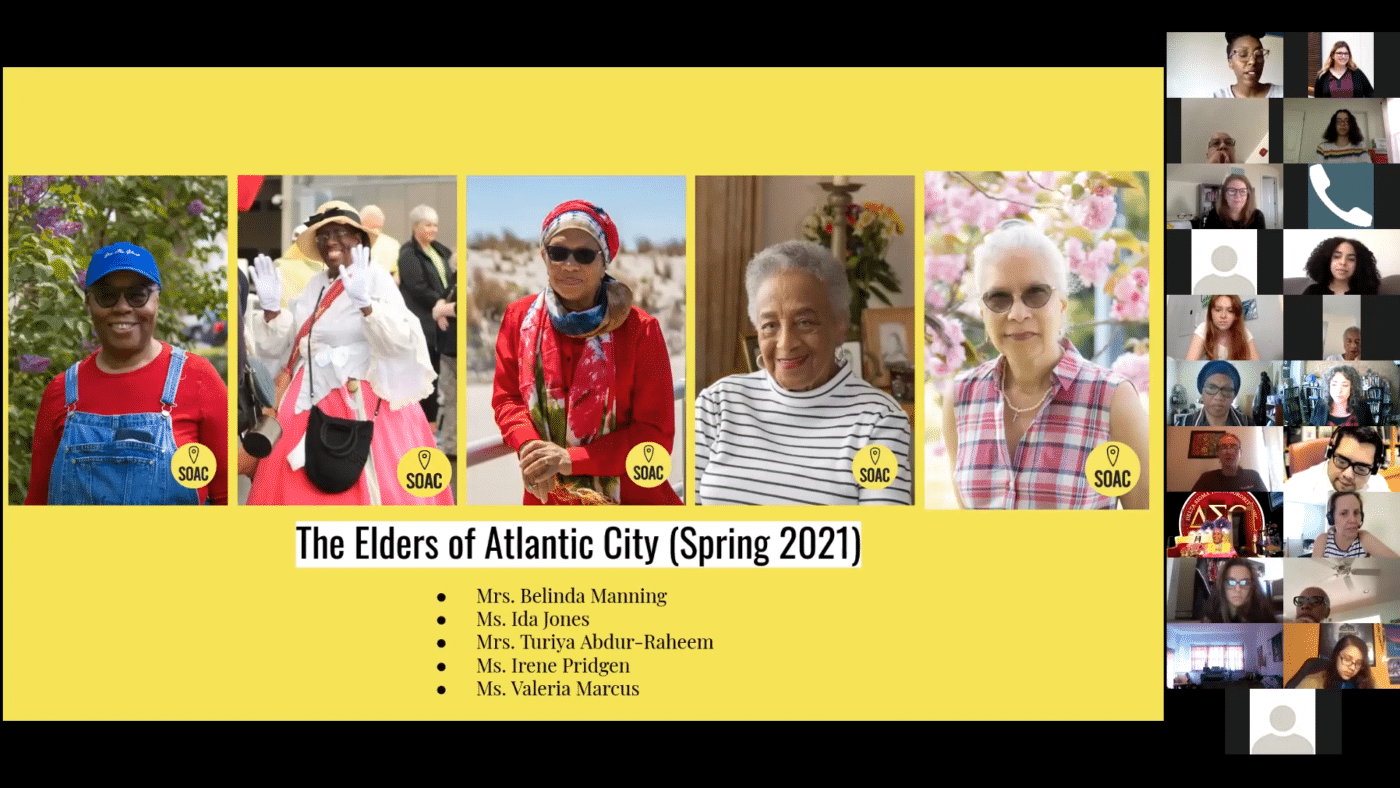By Emily Montgomery, SOAC Multimedia Content Producer
The Intergenerational Project started back in the Fall of 2020 semester after the Stories of Atlantic City team and Dr. Christina Morus came up with the idea to collaborate with the Atlantic City community. Students were each paired up with an elder from the community to listen to their stories and learn about the Civil Rights Era from a first-person perspective. Students took the information they gathered from their interviews and made presentations highlighting each of the elders’ lives, which were then showcased to the community. After the first round of the project was a success, it was only right to carry it out again in the Spring 2021 semester.
This time, it started with a powerhouse of community women and another group of students, both determined to break generational and racial barriers.
Round two of Stories of Atlantic City’s Intergenerational Project, a collaborative effort between the project and Dr. Morus’s Media, Civil Rights, and Social Change course, was a success. Following the framework of round one, this time, there were five groups of students who each interviewed one elder. The class’ interviewees included respected Atlantic City community members Irene Pridgen, Turiya Raheem-Abdul, Valeria Marcus, Ida Frances Jones, and Belinda Manning. Each of these women presented the students with stories and experiences from their childhood that made them the influential women that they are today.
The women spoke about their experiences during the Civil Rights Era and their opinions on the Black Lives Matter Movement. Through a series of questions, the students gained valuable insight into the lives of people who they otherwise would not have met.
Through this project, students were able to form relationships with community members while also being able to learn stories about Atlantic City and its residents. Atlantic City is often depicted in a negative light in the media, and so the crossing of intergenerational and racial lines within this project inspired and enlightened students; with this newly found perspective comes a craving for change and a love for one’s community and its residents. One student, Byonce Tyus, spoke of the ways in which this project influenced her.
“I care about Black lives, shouldn’t I have Black friends and peers so I’m corrected when I’m wrong or humbled when I overstep? I should, and I do. I care about this community; shouldn’t I learn about it? I should, I have, and I still do. I care about the issues facing my family, and friends so shouldn’t I– at the very least– have difficult, and uncomfortable conversations about my reality versus theirs? Shouldn’t I speak, and support them rather than hide and be silent? I should, I have, and I do,” she said.
The students were not the only ones who were inspired. The elders were just as interested in learning about the lives of the students as the students were to learn about theirs. One of the elders, Belinda Manning, spent the first twenty minutes of the interview asking the students questions about their lives and their goals. Manning said that being interviewed through Zoom allowed for everyone to feel comfortable while engaging in conversation about each other’s lives.
Courtney Bono, a freshman at Stockton, said that she found the project impactful because of how inspiring Ms. Frances Jones is and how she has led such a meaningful life.
“This experience was like no other,” she said. “Learning about how Ms. Frances Jones lived and survived the way she did really shows how strong and positive of a woman she is. However, the most impactful thing I learned from her was that she never gave up no matter how hard life was,” Bono said.
The students gave presentations about their elder’s lives on May 4. Elders were invited to attend the Zoom meeting, wherein the students would present their projects.
Dr. Morus and Stories of AC had a goal of showing the students how effective community storytelling can be when entering this project.
“The goal of the project is to expose students to the power of intergenerational connection and grassroots community storytelling,” Dr. Morus said. “After two rounds of the project, that goal seems to be more than attainable.”
